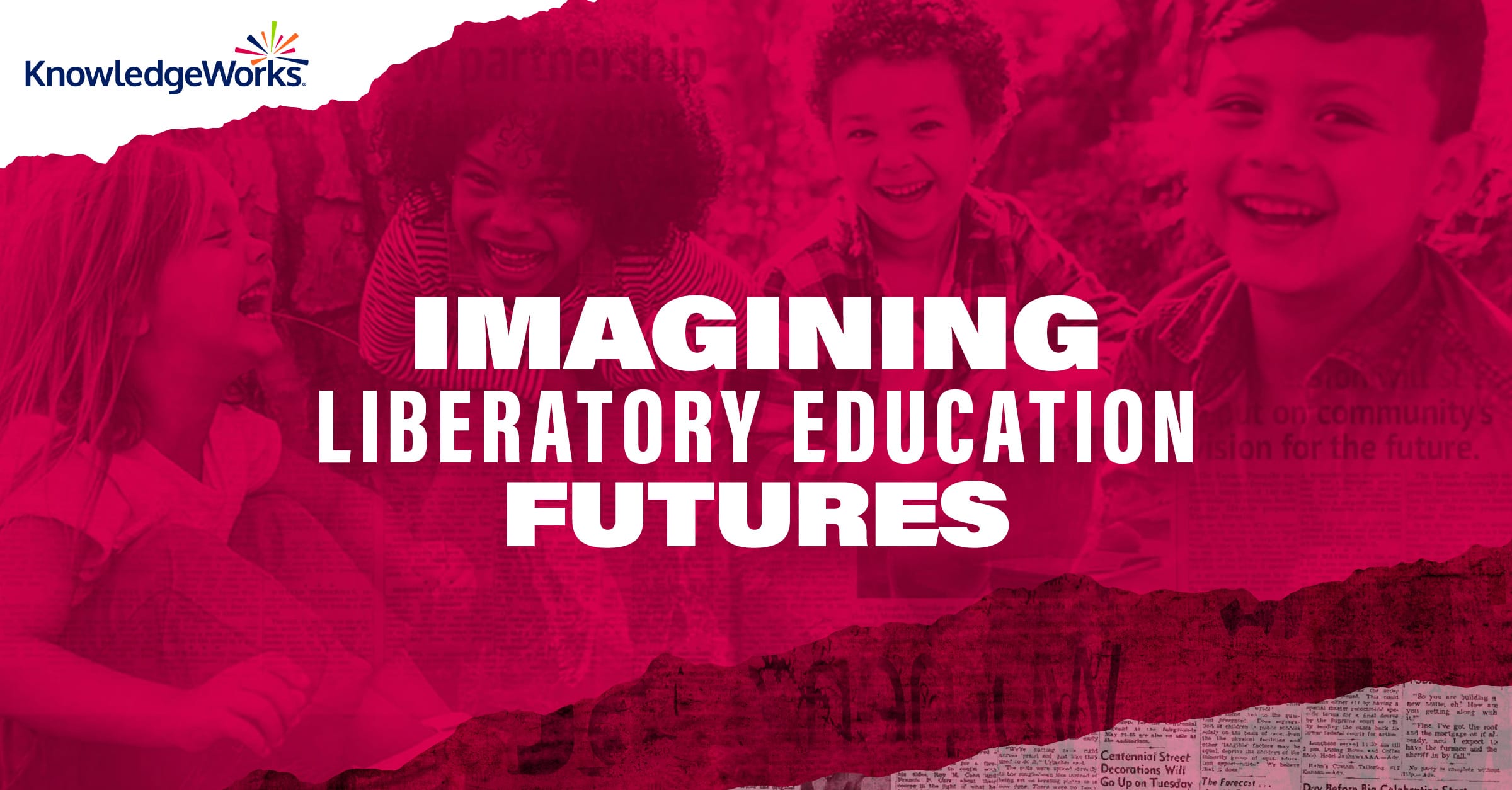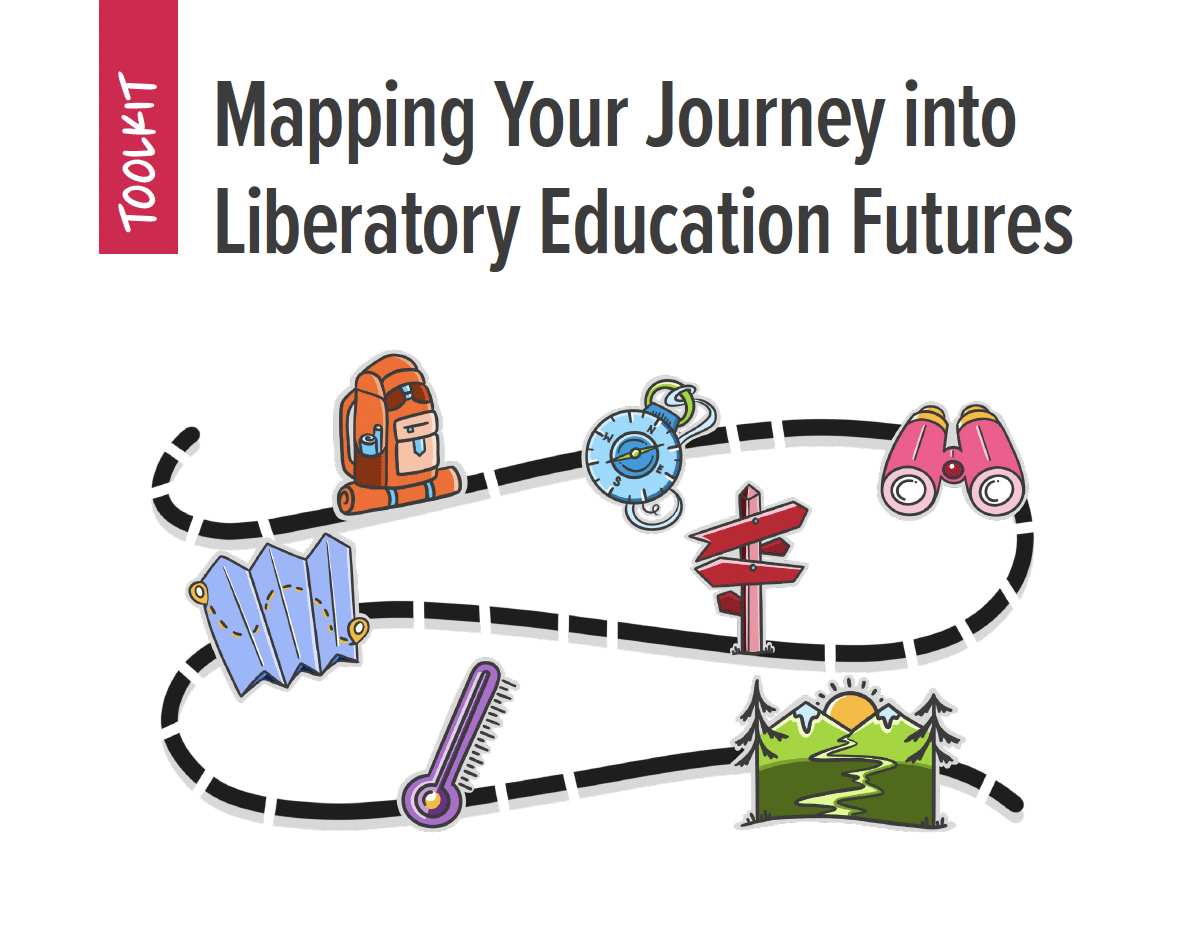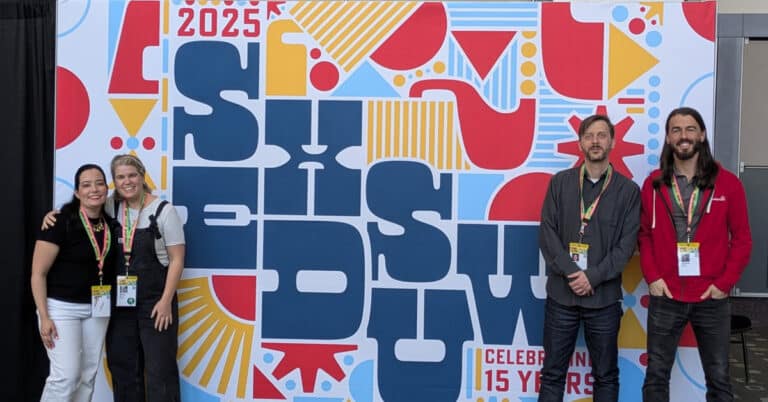The future is shaped by countless forces both big and small. Among them, advances in technology have long captured people’s attention and shaped notions of what the future could be.
KnowledgeWorks has been exploring the possibilities and implications of technological advancement when it comes to the future of learning. The release of ChatGPT has made the future feel a lot closer, with many people both in and outside of education nervous and excited by its prospects and researching ways it can support teaching and learning. We spoke with Luke Talkers, a science instructor at Butler Tech High School in Fairfield Township, Ohio, about how he is using ChatGPT in his classroom, as well as where he thinks both artificial intelligence (AI) and ChatGPT might be leveraged in the future.
How have you used ChatGPT in your classroom?
I’ve used ChatGPT for help in drafting emails, creating rubrics, generating questions, etc. I haven’t had my students interact with it, yet, but I plan on using it more. I just read the book, AI for Educators by Matt Miller and he proposed several ideas on how to implement AI in the classroom.
I think the most valuable thing from ChatGPT is that it saves time and gets the ball rolling, so to speak. If you’re not sure where or how to start, it’s a great starting point.
You used ChatGPT to create a learning progression. How did that go?
I’ve had a lot of discussions with coworkers about the things ChatGPT can do. In a science professional development session, we used it to create a rubric, write stories, make connections between science content and students’ (seemingly unrelated interests). A few days later at our Ohio Personal Learning Network convening, our Innovative Teaching and Learning Coach suggested we could use ChatGPT to make learning progressions, so I decided to give it a try for my next unit on chemical reactions.
Since ChatGPT saves all inputs, I can tell you what I asked it to do for me:
- I asked it to “give me a four-step learning progression for a high school chemistry unit on chemical reactions.”
- It did. And it was mostly good, but not great.
- I didn’t revise the progression, yet. I pushed it with another question.: “Make those four steps into “I can” statements for students.”
- It gave three “I can” statements for each.
- Then I asked it to “simplify it to only one ‘I can’ statement for each step, showing very basic knowledge in step one and mastery in step three, and to label the steps, ‘1: emerging, 2: developing, 3: mastery, 4: extending.’”
- I asked it what Ohio Learning Standards are related to chemical reactions and it gave me a list of a few standards, some not applicable.
After that, I had a pretty good start. I think I decided to move my progressions around a little bit. I split the second developing step into step two and three and moved the third mastery step to extending.
It wasn’t perfect from the beginning. I had to ask follow-up questions to narrow the focus to exactly what I wanted. I also had to shuffle some things around to create something that would best fit my students.
We saw a huge leap from ChatGPT-3 to ChatGPT-4. When you think about the future, what other uses for ChatGPT in education might be possible in 10 years’ time?
We’ll eventually look back and think the current ChatGPT was basic. I don’t really know what the future holds for ChatGPT, but I think of it now as an expert teacher’s assistant that will only get better and better. I think it will be able to grade student work accurately with feedback, design personalized lessons, etc. Students still need the emotional connection they get from human teachers, but teachers and students will have to evolve with AI and learn how to get the most out of it.
What are some cautions you have for others when it comes to applying ChatGPT in the classroom?
I think it’s important not to be scared of it. It’s just run on human inputs – it doesn’t have a mind of its own. Also, it’s not going away – it will be part of the future. So don’t ban it; embrace it and grow with it. Put some safeguards and restrictions around it if necessary. If students don’t have access now, they’ll be behind later. Teach students how to use it to benefit them, not to cheat. Talk about the ethics of AI – about what’s acceptable and what’s not.
What advice do you have for other educators who are interested in using ChatGPT in their classrooms, or in other ways?
Just play around with it and see what it can and can’t do. The more experience you have just using it, the more ways you can find to use it. I started using it just out of curiosity after hearing so much about it and learned a lot more through experience. There are some good ideas in AI For Educators and elsewhere on the internet.
More broadly, when you think about the future of applying AI to education, what are you excited about?
Education is already shifting more towards work-based learning, providing students with experiences of simulated work environments and the skills necessary to thrive at work. Even in the traditional academic classes, we’ll be pushing for more authentic experiences for students to prepare them for their future work. I think AI will accelerate this shift. Out of necessity, there will be more student collaboration and discussions in classrooms, rather than filling out worksheets or writing responses to questions. In the real world, students need to work together and collaborate and therefore need interpersonal skills. With advancing AI and ChatGPT, educators won’t be able to assign as many worksheets or essays, or more traditional assessments. Tools like ChatGPT will encourage many teachers to teach differently, in a way that better prepares them for the future.







